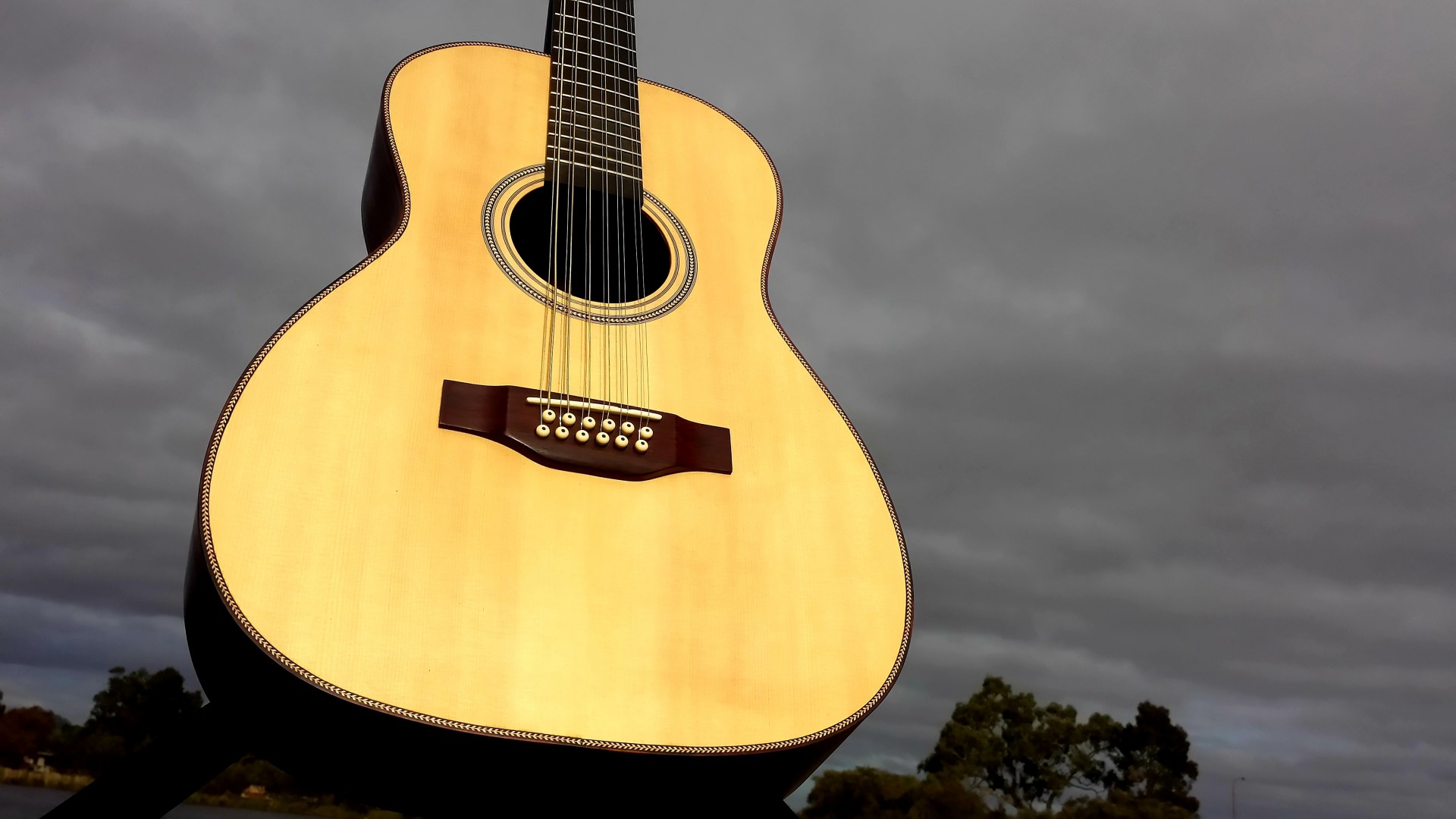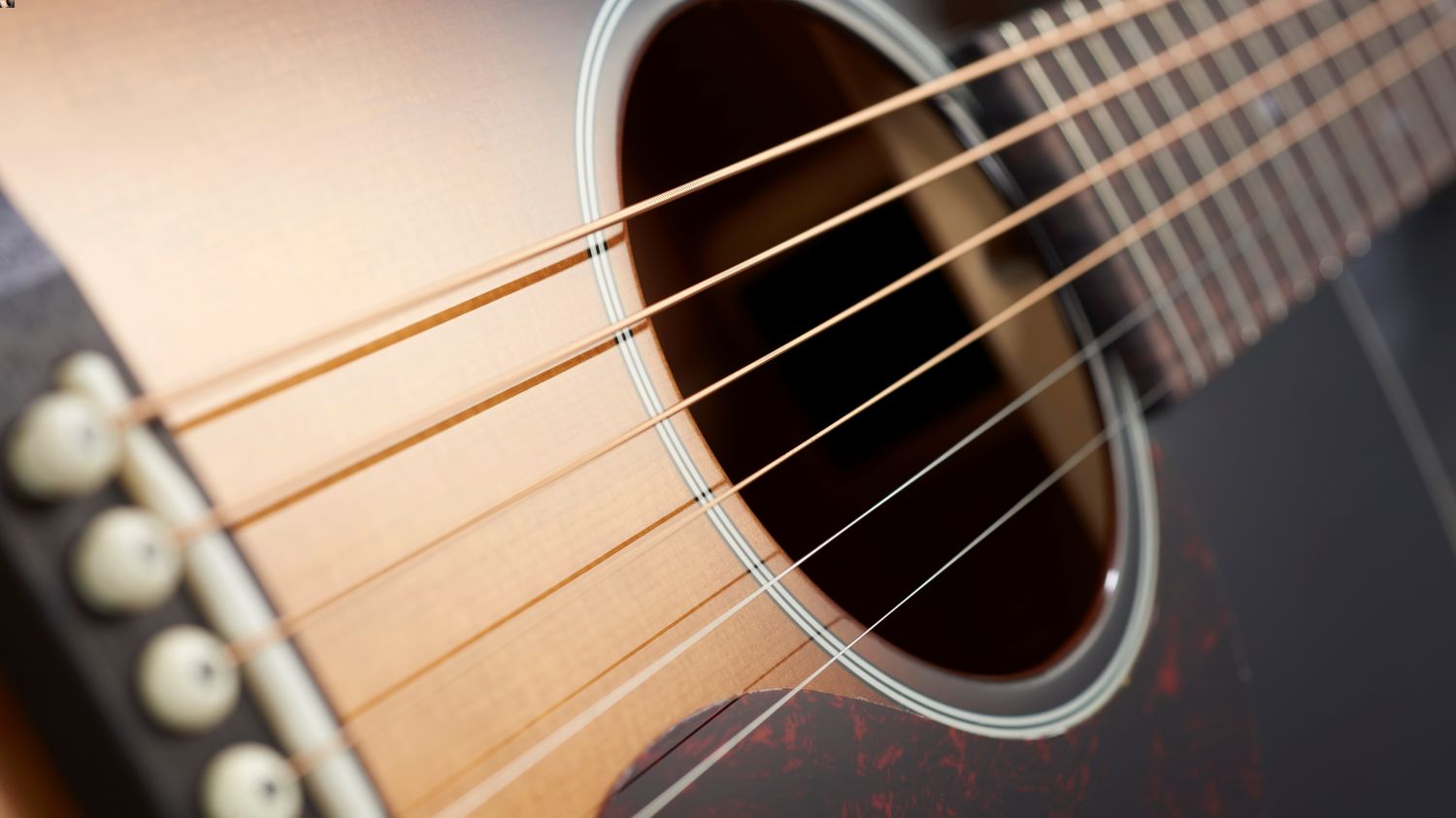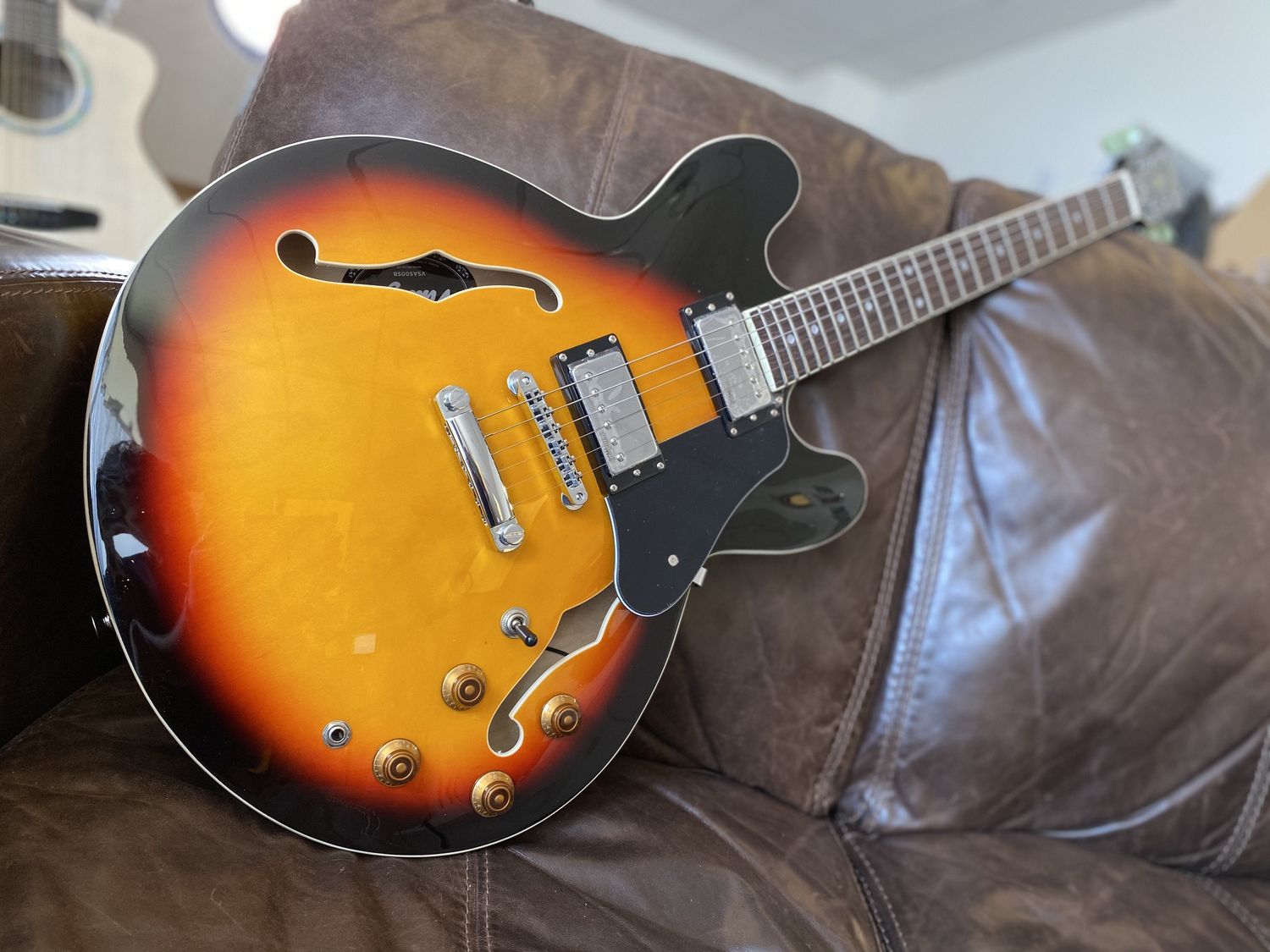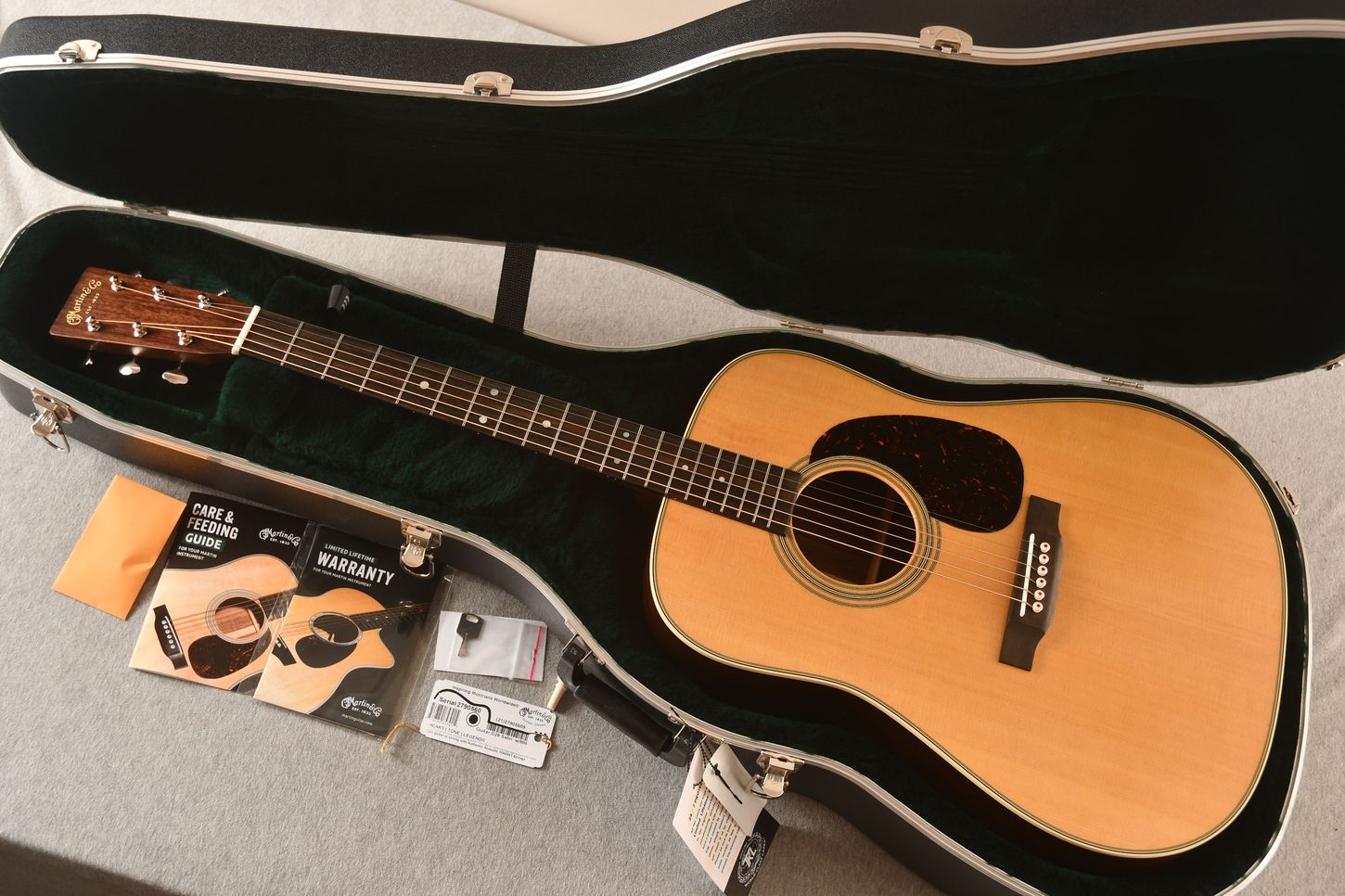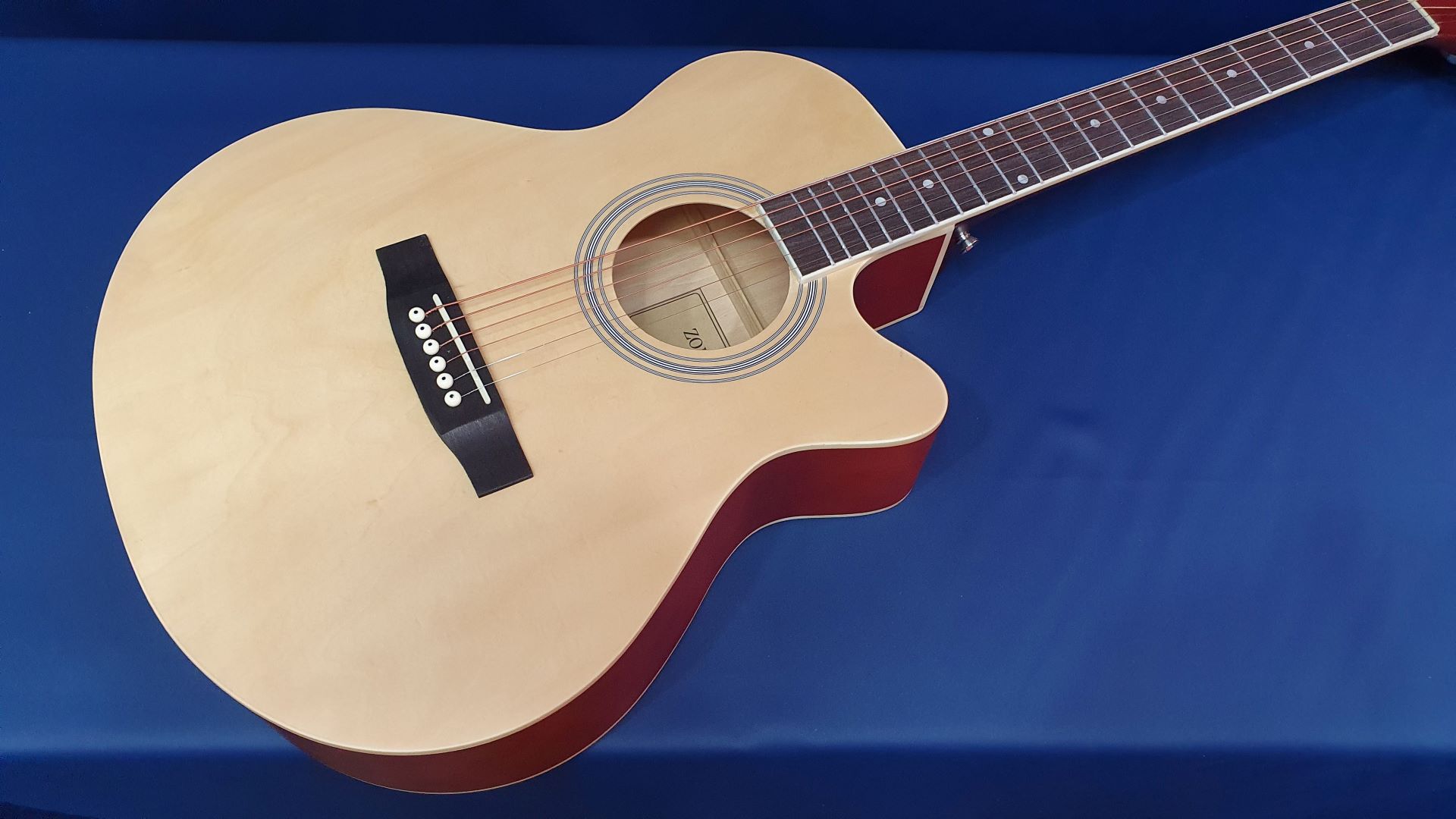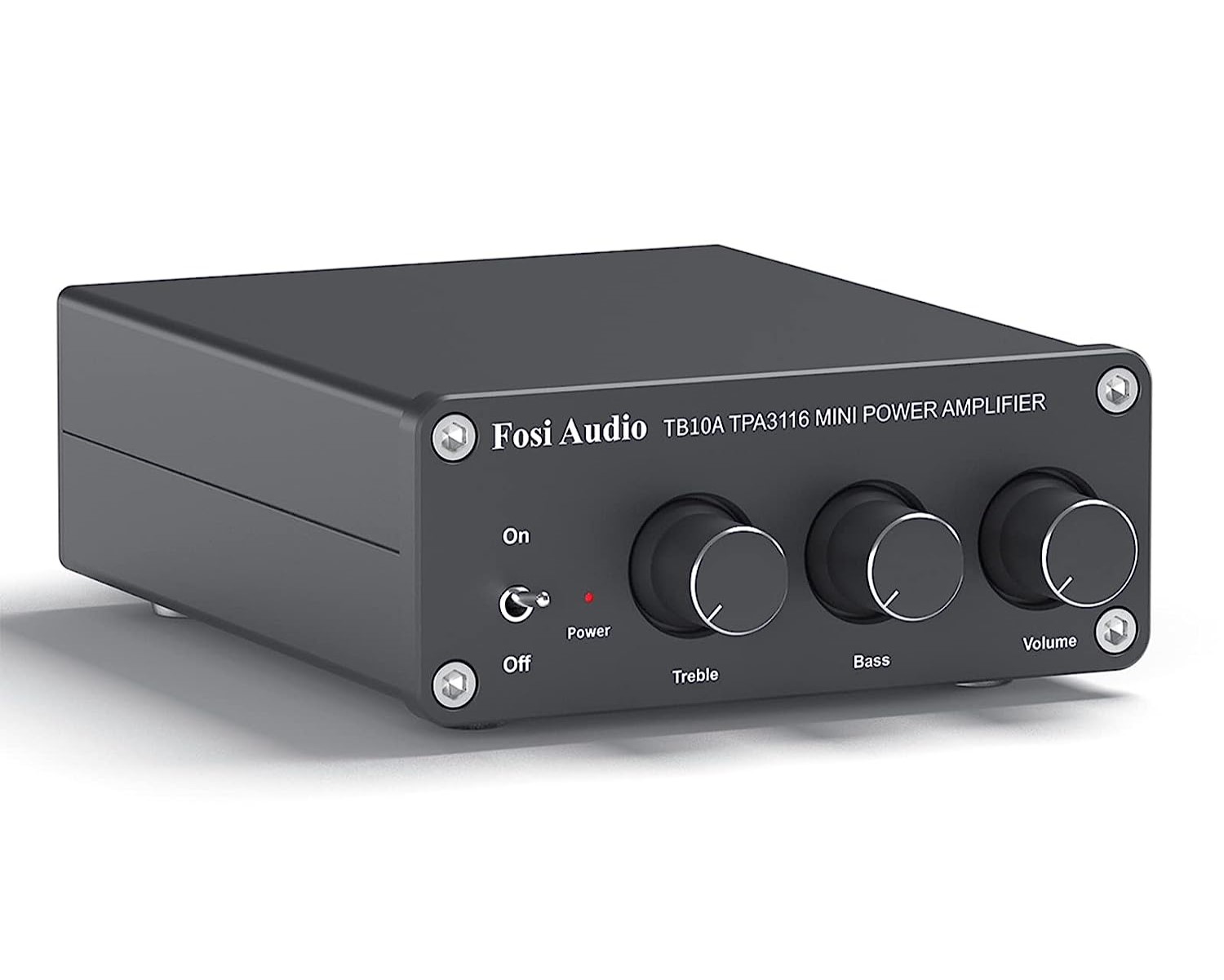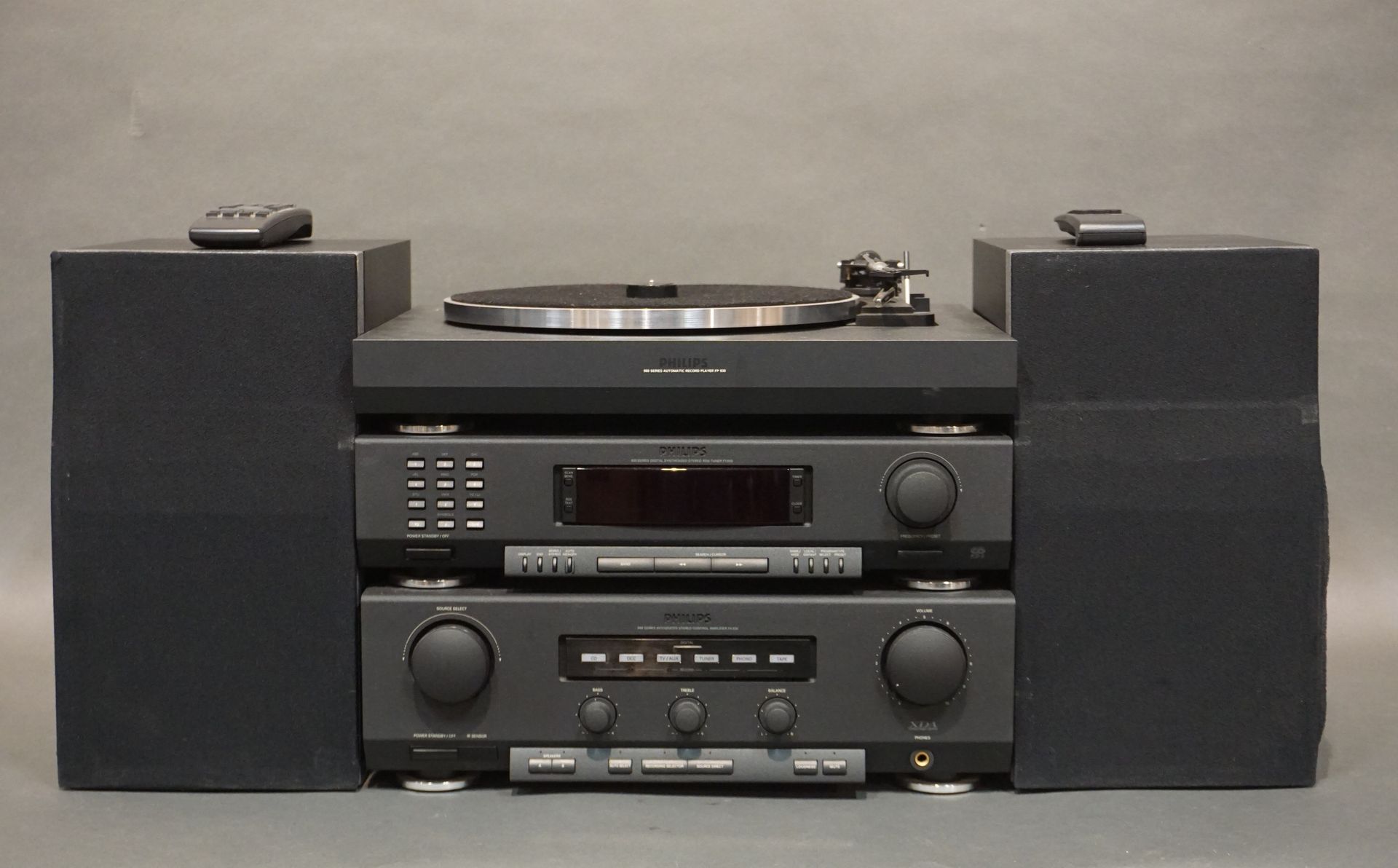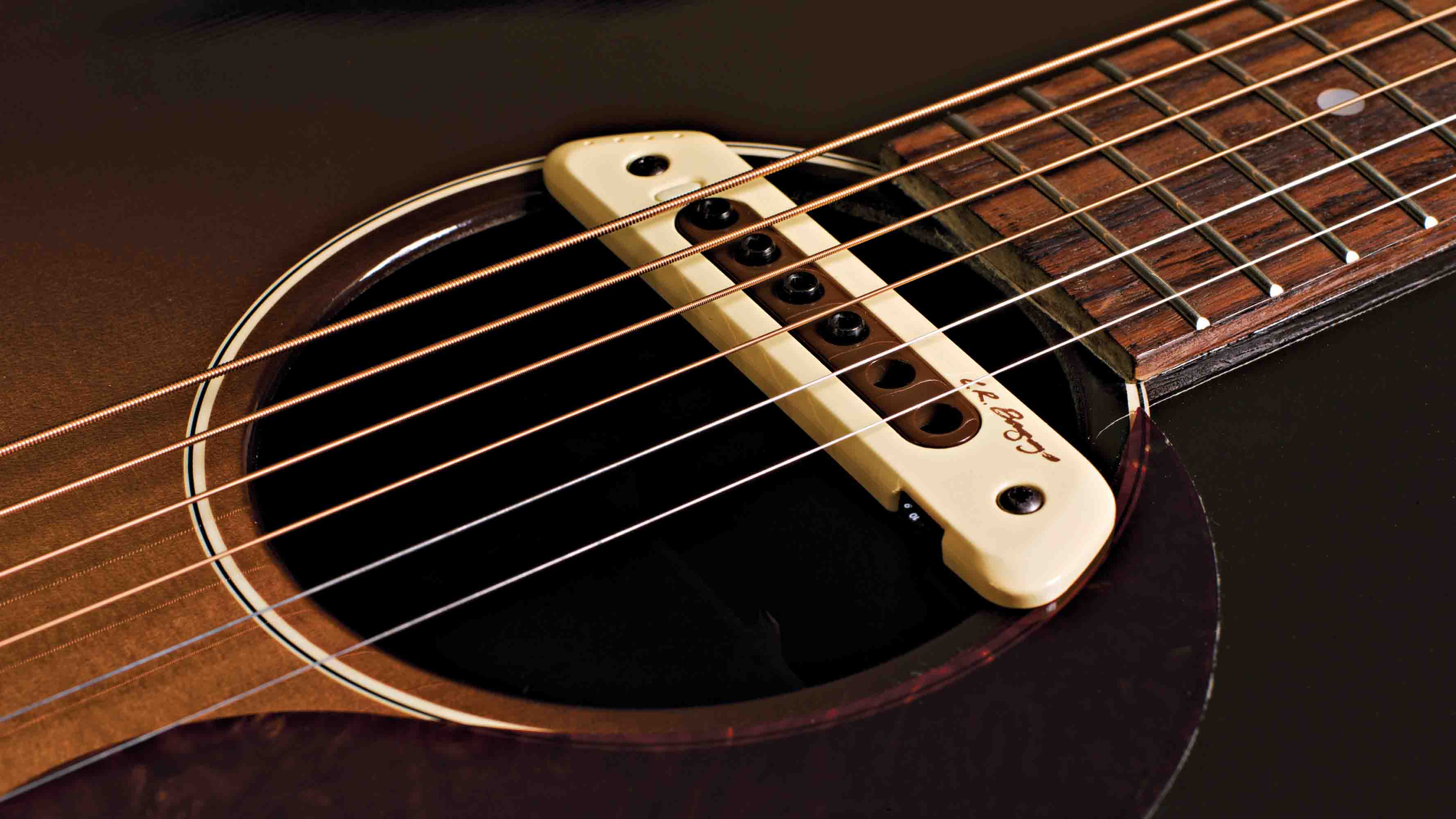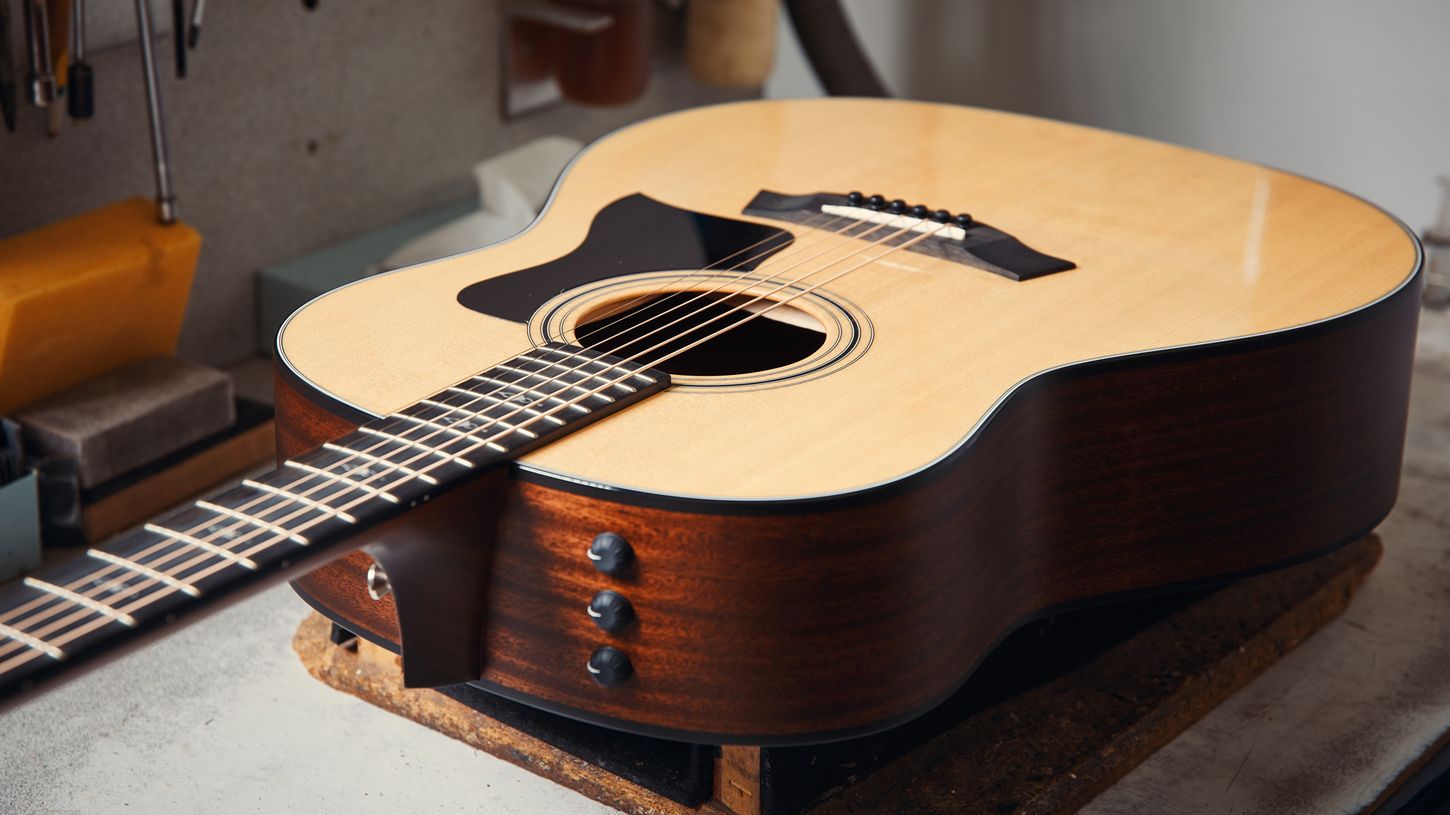Home>Production & Technology>Acoustic>What Is The Best Acoustic Guitar Amplifier
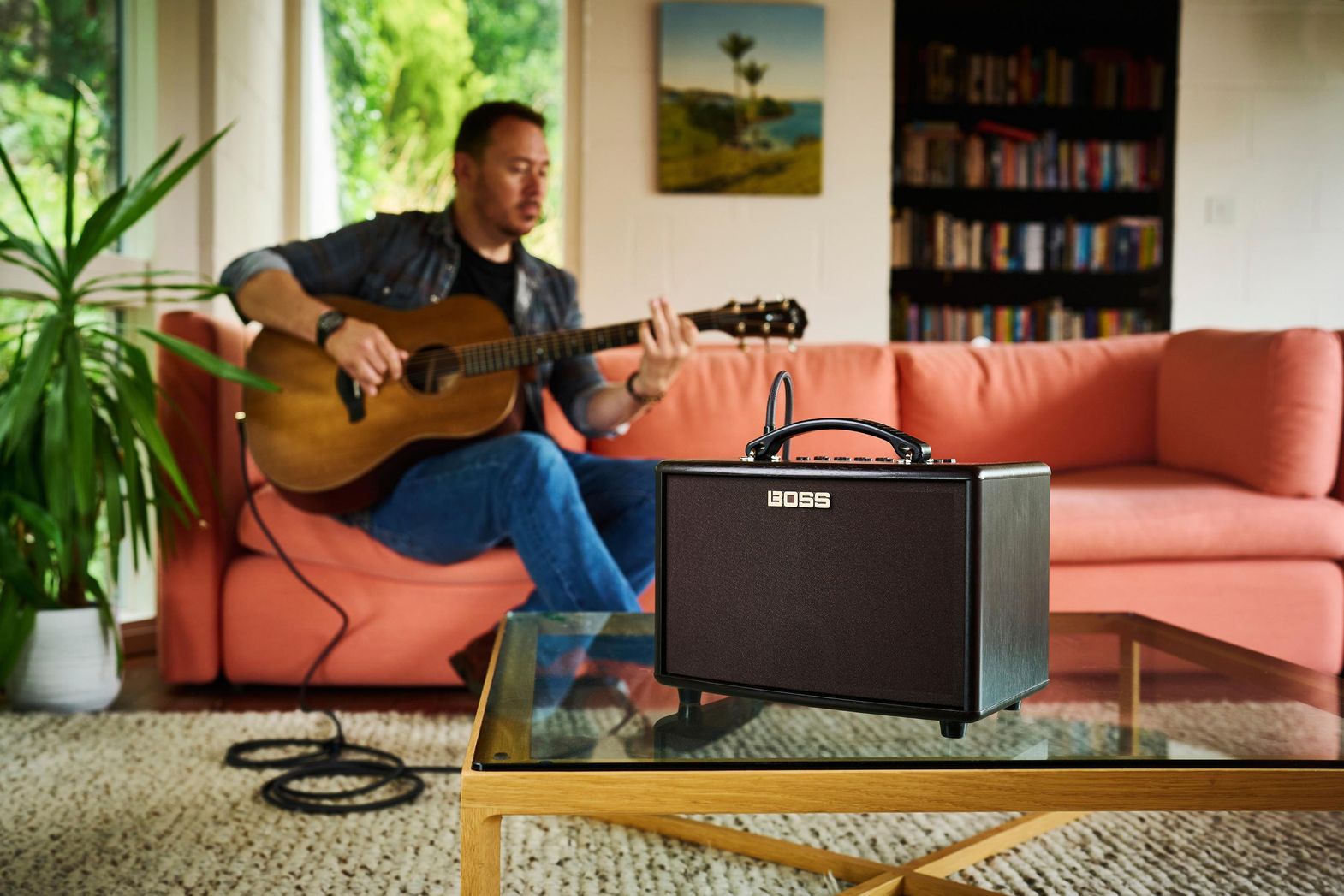

Acoustic
What Is The Best Acoustic Guitar Amplifier
Published: March 12, 2024
Looking for the best acoustic guitar amplifier? Discover top-rated options for enhancing your acoustic sound. Find the perfect amplifier for your acoustic needs.
(Many of the links in this article redirect to a specific reviewed product. Your purchase of these products through affiliate links helps to generate commission for AudioLover.com, at no extra cost. Learn more)
Table of Contents
Introduction
When it comes to amplifying the rich, resonant tones of an acoustic guitar, choosing the right amplifier is crucial. An acoustic guitar amplifier serves as the bridge between the instrument and the audience, enhancing the natural sound of the guitar and ensuring that every note is heard with clarity and precision. Whether you're a seasoned performer or a passionate hobbyist, investing in a high-quality acoustic guitar amplifier can elevate your playing experience to new heights.
The world of acoustic guitar amplifiers is diverse and dynamic, offering a wide range of options to suit different playing styles, venues, and preferences. From compact, portable amps designed for intimate coffeehouse performances to powerful, versatile systems tailored for large concert stages, there is an amplifier for every need and aspiration.
In this comprehensive guide, we will delve into the intricacies of acoustic guitar amplifiers, exploring the various types available, the key factors to consider when choosing an amplifier, and highlighting some of the top brands and models that have earned acclaim for their exceptional performance and reliability. Whether you're a solo artist seeking the perfect amplifier for small gigs or a band member looking to amplify your acoustic guitar in a larger ensemble, this guide will provide valuable insights to help you make an informed decision.
As we embark on this journey through the realm of acoustic guitar amplifiers, it's important to recognize the pivotal role that these amplifiers play in shaping the sonic landscape of acoustic performances. With the right amplifier at your disposal, you can unleash the full potential of your acoustic guitar, infusing each melody and chord progression with warmth, depth, and nuance. By understanding the nuances of acoustic guitar amplifiers and the impact they have on sound reproduction, you can embark on a quest to discover the best amplifier that aligns with your artistic vision and sonic aspirations.
So, let's embark on this sonic adventure, unraveling the intricacies of acoustic guitar amplifiers and uncovering the amplification solutions that will empower you to share your music with the world.
Types of Acoustic Guitar Amplifiers
When it comes to acoustic guitar amplifiers, there is a diverse array of options available, each tailored to meet specific performance needs and sonic preferences. Understanding the different types of acoustic guitar amplifiers is essential for selecting the ideal amplifier that complements your playing style and venue requirements. Let's explore some of the most common types of acoustic guitar amplifiers:
-
Acoustic Combo Amplifiers: These all-in-one amplifiers are popular among solo performers and small ensembles. They feature a built-in amplifier and speaker, offering convenience and portability. Acoustic combo amplifiers often include onboard controls for adjusting tone, reverb, and other effects, making them versatile for various musical styles.
-
Acoustic Amp Heads and Cabinets: This setup separates the amplifier head from the speaker cabinet, providing flexibility in configuring the amplification system. Acoustic amp heads offer a range of tone-shaping controls and often include advanced features such as effects loops and direct outputs for connecting to sound systems or recording interfaces. Pairing the amp head with different speaker cabinets allows musicians to customize their sound and coverage based on the venue size and acoustic requirements.
-
Acoustic Preamp Pedals: Designed for portability and flexibility, acoustic preamp pedals are compact units that provide essential tone shaping and signal boosting capabilities. These pedals can be connected directly to a PA system or powered speaker, making them ideal for musicians who prioritize mobility and minimal setup time. Acoustic preamp pedals often incorporate EQ controls, built-in tuners, and DI outputs, offering a streamlined solution for amplifying acoustic guitars in various performance settings.
-
Acoustic Amplifier/DI Combos: These versatile units serve a dual purpose, functioning as both amplifiers and direct input (DI) boxes. Acoustic amplifier/DI combos are equipped with balanced XLR outputs, allowing direct connection to mixers, audio interfaces, or PA systems. This makes them ideal for performers who require a seamless transition between stage amplification and direct sound reinforcement.
-
Acoustic Mini Amplifiers: Compact and lightweight, these amplifiers are designed for portability and practice sessions. While they may not deliver the same power and projection as larger amplifiers, acoustic mini amplifiers are convenient for home use, small gatherings, and impromptu jam sessions.
Understanding the characteristics and applications of these acoustic guitar amplifiers is essential for making an informed decision based on your performance requirements, sonic preferences, and mobility needs. Each type offers unique advantages, catering to a diverse range of musicians and performance scenarios. By exploring the distinct features and capabilities of these amplifiers, you can identify the perfect amplification solution that elevates your acoustic guitar performances to new heights.
Factors to Consider When Choosing an Acoustic Guitar Amplifier
Selecting the right acoustic guitar amplifier involves careful consideration of several key factors to ensure that the chosen amplifier aligns with your musical goals and performance requirements. Here are the essential factors to ponder when choosing an acoustic guitar amplifier:
1. Amplifier Type:
The first step in the selection process is identifying the most suitable amplifier type for your needs. Consider the venue sizes where you will be performing, your mobility requirements, and the desired tonal characteristics. Whether you opt for a compact acoustic combo amplifier for intimate settings or a versatile amp head and cabinet setup for larger venues, the amplifier type should complement your playing style and performance scenarios.
2. Power and Projection:
Assess the power rating and projection capabilities of the amplifier to ensure that it can deliver sufficient volume and clarity for your performances. For larger venues and outdoor settings, a higher wattage amplifier with robust projection capabilities may be necessary to ensure that your acoustic guitar cuts through the mix and reaches the audience with pristine clarity.
3. Tone Shaping Features:
Evaluate the amplifier's tone shaping controls, including EQ settings, reverb, chorus, and other effects. The ability to sculpt your acoustic guitar's tone to suit different musical genres and playing styles is crucial. Look for amplifiers that offer versatile tone shaping options, allowing you to tailor your sound with precision and expressiveness.
4. Portability and Convenience:
If mobility is a priority, consider the portability and convenience of the amplifier. Compact, lightweight amplifiers or preamp pedals may be ideal for musicians who frequently perform in diverse locations and require easy setup and transport. Balancing portability with performance capabilities is essential for musicians on the move.
5. Connectivity Options:
Assess the connectivity options offered by the amplifier, such as XLR outputs, effects loops, and direct inputs. These features can enhance the versatility of the amplifier, enabling seamless integration with external devices, sound systems, and recording setups. The ability to connect to mixers, PA systems, and recording interfaces expands the amplifier's utility in various performance and recording scenarios.
6. Build Quality and Durability:
Investing in a well-constructed amplifier with durable components ensures reliability and longevity. Consider the build quality, materials used, and overall durability of the amplifier to make a sound investment that withstands the rigors of regular use and live performances.
7. Budget and Value:
Establish a realistic budget and seek amplifiers that offer the best value within your price range. While it's important to consider cost, prioritize the overall value and performance capabilities of the amplifier to make an informed decision that aligns with your musical aspirations and long-term needs.
By carefully evaluating these factors, you can navigate the diverse landscape of acoustic guitar amplifiers and pinpoint the perfect amplifier that empowers you to deliver captivating performances with your acoustic guitar. Each factor plays a pivotal role in shaping the amplifier's suitability for your unique musical journey, ensuring that you find an amplifier that resonates with your artistic vision and sonic preferences.
Top Brands and Models of Acoustic Guitar Amplifiers
When it comes to choosing an acoustic guitar amplifier, several renowned brands have consistently delivered exceptional quality, innovative features, and reliable performance. These top brands have earned the trust and admiration of musicians worldwide, offering a diverse range of amplifier models that cater to various playing styles and performance requirements. Let's explore some of the top brands and their standout models in the realm of acoustic guitar amplifiers:
1. Fender Acoustic Amplifiers
Fender, a legendary name in the world of guitars, has extended its expertise to acoustic amplification with a range of exceptional amplifiers. The Fender Acoustic Junior and Acoustic SFX models stand out for their pristine sound reproduction, versatile onboard effects, and portability. These amplifiers are designed to deliver rich, natural tones with remarkable clarity, making them ideal for solo performers and small ensembles.
2. Bose L1 Compact System
Bose has redefined acoustic amplification with its innovative L1 Compact System, which offers a unique approach to amplifying acoustic instruments. This sleek and portable system provides uniform sound coverage across the stage and the audience, ensuring consistent tonal balance and clarity. With its integrated mixer and spatial dispersion technology, the Bose L1 Compact System delivers an immersive acoustic experience for performers and listeners alike.
3. Fishman Loudbox Series
Fishman has established itself as a leading name in acoustic amplification, and its Loudbox series exemplifies the brand's commitment to sonic excellence. The Fishman Loudbox Mini and Loudbox Artist amplifiers are revered for their natural sound reproduction, intuitive controls, and exceptional feedback suppression. These amplifiers are favored by acoustic guitarists for their reliability and transparent sound quality, making them suitable for a wide range of performance settings.
4. Marshall AS Series
Marshall, renowned for its iconic electric guitar amplifiers, has ventured into the realm of acoustic amplification with its AS series. The Marshall AS50D and AS100D amplifiers combine the brand's legacy of craftsmanship with tailored features for acoustic instruments. These amplifiers offer robust projection, dual-channel flexibility, and built-in effects, catering to the needs of acoustic guitarists seeking a powerful and versatile amplification solution.
5. Roland AC Series
Roland's AC series of acoustic guitar amplifiers has garnered acclaim for its advanced sound processing capabilities and stage-ready performance. The Roland AC-40 and AC-60 models feature stereo multi-channel designs, anti-feedback controls, and onboard effects, empowering acoustic guitarists to achieve studio-quality sound in live performance environments. These amplifiers embody Roland's commitment to innovation and sonic precision.
6. Taylor Acoustic Amplifiers
Taylor Guitars, renowned for its exceptional acoustic instruments, has ventured into amplifier design with its line of acoustic amplifiers. The Taylor Acoustic Amplifier Series showcases meticulous attention to sonic detail, premium speaker components, and versatile tone shaping options. These amplifiers are engineered to complement the nuanced tonal characteristics of Taylor guitars, delivering a harmonious amplification experience for discerning musicians.
7. Acus Sound Engineering
Acus Sound Engineering has gained recognition for its dedication to crafting acoustic amplifiers that prioritize natural sound reproduction and tonal transparency. The Acus One Forstrings and Stage Series amplifiers exemplify the brand's commitment to acoustic purity, featuring high-fidelity sound reinforcement, sophisticated EQ controls, and elegant Italian design. These amplifiers are favored by acoustic purists and discerning performers seeking uncompromising sonic fidelity.
Each of these top brands and their flagship acoustic guitar amplifier models represents a commitment to sonic excellence, innovation, and the empowerment of musicians to express their artistry with unparalleled clarity and depth. Whether you seek pristine sound reproduction, versatile tonal control, or portability, these top brands offer a diverse array of amplifiers that cater to a wide spectrum of musical styles and performance scenarios. By exploring the offerings of these esteemed brands, you can discover the perfect acoustic guitar amplifier that resonates with your musical identity and amplifies your performances with distinction.
Conclusion
In the realm of acoustic guitar amplifiers, the quest for sonic excellence and expressive amplification culminates in a diverse landscape of amplifiers that cater to the unique needs and artistic aspirations of musicians. As we traverse the intricacies of acoustic amplification, it becomes evident that the choice of amplifier is not merely a technical decision but a profound expression of musical identity and sonic vision.
The journey through the types of acoustic guitar amplifiers unveils a tapestry of options, each offering distinct advantages tailored to specific performance scenarios and tonal preferences. From the convenience of compact acoustic combo amplifiers to the flexibility of amp heads and cabinets, the amplification landscape is rich with possibilities. The emergence of acoustic preamp pedals and amplifier/DI combos further underscores the evolving demands of modern musicians, emphasizing portability, versatility, and seamless integration with diverse performance setups.
Delving into the essential factors to consider when choosing an acoustic guitar amplifier illuminates the multifaceted nature of amplifier selection. The interplay of amplifier type, power and projection, tone shaping features, portability, connectivity options, build quality, and budget considerations underscores the holistic approach required to make an informed decision. By carefully weighing these factors, musicians can align their amplifier choice with their artistic vision, performance requirements, and long-term aspirations.
Exploring the top brands and models of acoustic guitar amplifiers unveils a tapestry of sonic craftsmanship and innovation. From Fender's legacy of excellence to Bose's pioneering approach, Fishman's commitment to transparency, Marshall's electric heritage, Roland's sonic precision, Taylor's harmonious synergy, and Acus Sound Engineering's uncompromising fidelity, each brand and its flagship models embody a dedication to sonic excellence and the empowerment of musicians to articulate their musical narratives with distinction.
In conclusion, the world of acoustic guitar amplifiers transcends mere amplification; it embodies a symbiotic relationship between the musician, the instrument, and the audience. The chosen amplifier becomes an extension of the artist's sonic identity, a conduit for artistic expression, and a testament to the pursuit of sonic perfection. By embracing the nuances of acoustic amplification, musicians embark on a transformative journey, where every note resonates with clarity, warmth, and emotive depth, transcending the confines of the instrument and reverberating with the essence of musical storytelling.

